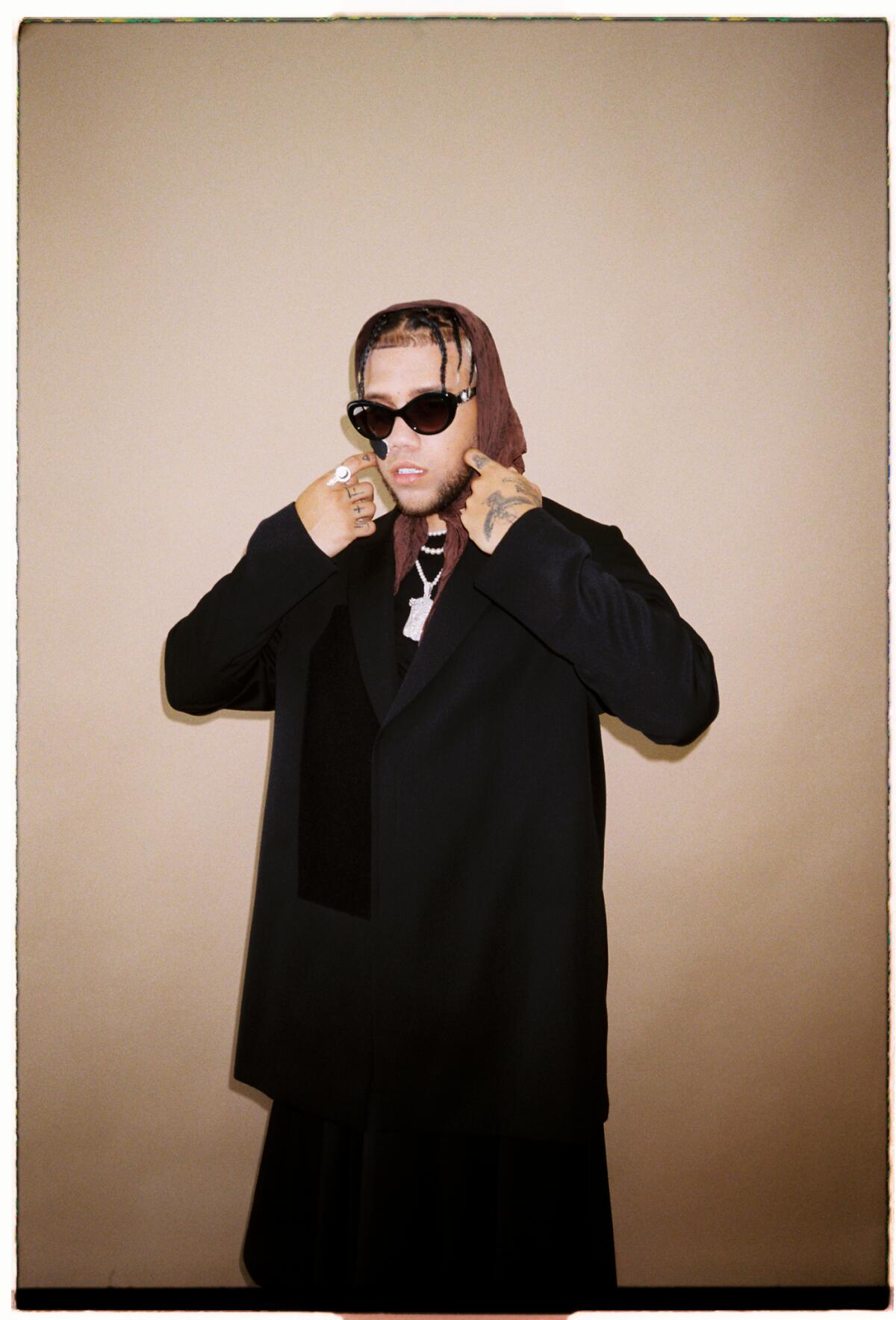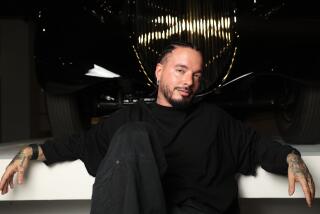Rising reggaeton star Jhay Cortez: ‘Follow the rules and you’ll just sound like everyone else’

Sporting flashy streetwear and shocks of pastel hair, Puerto Rican singer-songwriter Jhay Cortez is one of the most recognizable artists in reggaeton — but when it comes to his burgeoning celebrity status, the Bad Bunny collaborator would rather lie low and keep the sunglasses on, please.
“Artists lose their magic when they reveal too much,” he says, tapping the square frames that mask his face. Video-chatting from a studio in Los Angeles, Cortez has just completed production on his sophomore LP, “Timelezz.” Due Sept. 3, the 17-track collection further evolves his identity as an artist, floating beyond his tropical comfort zone and through the liminal spaces between pop, electronica and hip-hop.
“I wanted to go beyond the Puerto Rican sound and make music for everyone,” he says. “Anything that makes you dance can be universal.”

Raised between his native Puerto Rico and Camden, N.J., Cortez, now 28, made a name for himself as a songwriter-composer for first-wave reggaeton MCs like Tito El Bambino and Yandel. Following his 2019 debut “Famouz,” Cortez rose up the genre’s ranks when J Balvin and Bad Bunny hopped on the 2019 remix of his triple-platinum single, “No Me Conoce.” Cortez then resurfaced in 2020 with Bad Bunny in their international superhit “Dákiti,” which swapped the traditional reggaeton song structure for synth-pop hooks and a brisk dembow beat. The song was a gamble, but it topped the Billboard Global 200 — and made for their splashy first performance at the Grammys in March.
“I can’t even say it was a dream come true,” he says, “because I never thought I was going to sing at the American Grammys.”

The song was a fitting teaser for “Timelezz.” On “Dile” he serves up bachata and salsa sounds, while the Latin trap “Kobe in L.A.” is outfitted with moody classical guitars. A-list producer Skrillex makes a surprise appearance on “En Mi Cuarto” — a house-driven detour with a cosmopolitan lounge groove. “I used to see Skrillex and think he was like, an alien,” Cortez says with a laugh. “But working with him was inspirational.”
Cortez closes the album with the dream-pop reverie “Eternamente,” a collaboration with the Puerto Rican indie band Buscabulla.
“You gotta know the rules of the game so you know how to break them,” Cortez says of his career path. “Follow the rules and you’ll just sound like everyone else.”
More to Read
The biggest entertainment stories
Get our big stories about Hollywood, film, television, music, arts, culture and more right in your inbox as soon as they publish.
You may occasionally receive promotional content from the Los Angeles Times.










